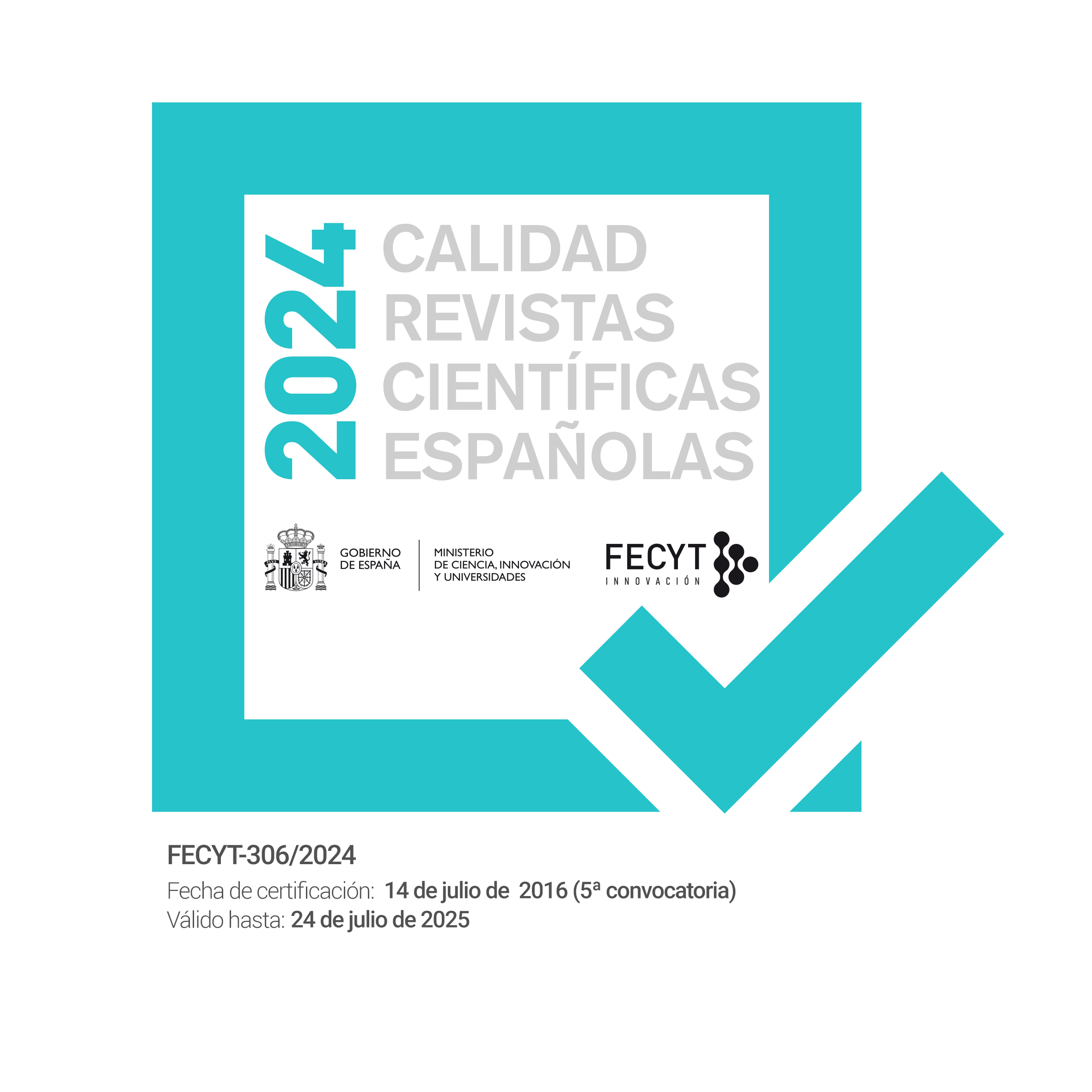Call centers y sindicalismo en Portugal. Un estudio de caso a través de la prensa
DOI:
https://doi.org/10.22325/fes/res.2022.134Palabras clave:
sindicalismo, renovación, huelga, call centers, afiliación, poder moralResumen
Este artículo tiene por objeto describir las principales causas de la constitución de un nuevo sindicato en Portugal, en un contexto global de declive sindical. Todo ello con el objetivo de señalar la importancia del poder moral en el debate sobre la renovación sindical. Su interés inicial cabe situarlo el pasado 19 de febrero de 2019 en Braga (Portugal), cuando se produjo la concentración de trabajadores de call center para reclamar ciertos derechos laborales y exigir respeto por su profesión ante la sede de Concentrix. Esta huelga fue convocada por el Sindicato dos Trabalhadores de Call Center (STCC), que había sido legalizado apenas un lustro antes. Se trata de una protesta que tuvo continuidad al año siguiente y bajo la misma reivindicación fundamental, la reclamación de dignidad profesional.
Para su estudio, metodológicamente nos basamos en la recopilación de noticias publicadas en los principales periódicos portugueses y en la revisión de la literatura vinculada, junto a la consulta de las publicaciones oficiales y estatutos del citado sindicato. Como conclusiones adelantadas, destacamos las denuncias realizadas desde el STCC sobre falta de respeto profesional, vinculada al cumplimiento de la normativa laboral, junto a la necesidad de una mayor participación en el interior del sindicato y la orientación ofensiva de su acción sindical. Estas actuaciones han conseguido que numerosos trabajadores se hayan constituido bajo un sindicato, al tiempo que también han contribuido a su alejamiento de las grandes federaciones sindicales portuguesas.
Citas
Barranco, O. & Molina, O. (2014). Sindicalismo y crisis económica: Amenazas, retos y oportunidades. Kultur: revista interdisciplinària sobre la cultura de la ciutat, 1(2), 171-194. https://doi.org/10.6035/Kultur.2014.1.2.9
Beroud, S., & Bouffartigue, P. (2009). Quand le travail se précarise, quelles résistances collectives?. París: La Dispute.
Behrens, M., Hamman, K. & Hurd, R. (2004). Conceptualizing Labor Union Revitalization. En C. Frege, y J. Kelly (Coords.), Varietes of Unionism. Strategies for Union Revitalisation in a Glbalization Economy. Oxford: Oxford University Press.
Beneyto, P. J. (2017). Crisis y renovación del sindicalismo. Arxius de Sociologia, 36-37, 15-34.
Bermúdez, E., & Roca, B. (2019). Participación de mujeres en el movimiento sindical: análisis desde la perspectiva de los recursos de poder. Sociología del Trabajo, 95, 53-72. https://doi.org/10.5209/stra.66435
Bernaciak, M., Gumbell-McCormic, R., & Hyman, R. (2015). El sindicalismo europeo: ¿de la crisis a la renovación?. Madrid: Fundación 1.º de Mayo.
Björkman, H., & Huzzard, T. (2005). Membership Interface Unionism: A Swedish White-Collar Union in Transition. Economic and Industrial Democracy, 26(1), 65-88. https://doi.org/10.1177/0143831X05049403
Brunet, I., y Moral-Martín, D. (2020). Nuevas Organizaciones Sociales. El sindicalismo ante el nuevo modelo de acumulación. Barcelona: Anthropos.
Brunet, I., & Moral-Martín, D. (2019). Industrial relations and financial globalization: Analysis of national experiences in Europe, America and Asia. Universitat de València: Universitat Rovira i Virgili, Publicacions URV.
Brunet, I., y Moral-Martín, D. (2016). Sistemas laborales comparados: las transformaciones de las relaciones de empleo en la era neoliberal. Barcelona: Anthropos.
Bryson, A., Ebbinghaus, B., & Visser, J. (2011). Introduction: Causes, Consequences and cures of union decline. European Journal of Industrial Relations, 17(2), 97-105. https://doi.org/10.1177/0959680111400893
Calleja Jiménez, J. P. (2017). Estrategias para la recuperación de poder sindical en España. Lan harremanak: Revista de relaciones laborales, (35), 290-304
Campos, M., & Martín Artiles, A. (2014). Descontentamento na Europa em tempos de austeridade: da ação coletiva à participação individual no protesto social. Revista crítica de ciencias sociais, (103), 137-172. https://doi.org/10.4000/rccs.5569
Checchi, D., Visser, J., & Van der Werfhorst, H. (2010). Inequality and Union membership: The influence or relative earnings and inequality attitudes. British Journal of Industrial Relations, 48(1), 84-108. https://doi.org/10.1111/j.1467-8543.2009.00757.x
Collovald, A., & Mathieu, L. (2009). Mobilisations improbables et apprentissage d'un répertoire sindical. Politix, 86(2), 119-143. https://doi.org/10.3917/pox.086.0119.
Costa, H., Dias, H., & Soeiro, J. (2014). As greves e a austeridade em Portugal: Olhares, expressões e recomposições, Revista Crítica de Ciências Sociais [online], (103). https://doi.org/10.4000/rccs.5584
Doellgast, J. T., & Greer, I. (2007). Vertical Disintegration sand the Disorganization of Ger-man Industrial Relations. British Journal of Industrial Relations, 45(1), 55-76. https://doi.org/10.1111/j.1467-8543.2007.00602.x
Ebbinghaus, B., & Viser, J. (1999). When Institutions Matter. Union Growth and Decline in Western Europe. European Sociological Review, 15(2), 135-158. http://www.jstor.org/stable/522497
Estanque, E. (2005). Trabalho, desigualdades sociais e sindicalismo. Revista crítica de ciencias sociais, (71), 113-140. https://doi.org/10.4000/rccs.1023
Estanque, E., & Costa, H. (2018). Trabalho e desigualdades no século XXI: velhas e novas linhas de análisis. Revista crítica de ciencias sociais, (Número especial), 261-290. https://doi.org/10.4000/rccs.7947
Flanders, A. (1970). Management and unions: the theory and reform of industrial relations. Londres: Faber and Faber.
Frege, C., & Kelly, J. (Eds.). (2004). Varieties of Unionism. Strategies for Union Revitalization in a Global Economy. Oxford: University Press.
García Calavia, M., y Rigby, M. (2016). Recursos de poder de los sindicatos en España. Su examen a través de la negociación colectiva. Sociología del Trabajo, 87, 7-24. https://revistas.ucm.es/index.php/STRA/article/view/60369
De la Garza Toledo, E. (2009). Problemas clásicos y actuales de las crisis del trabajo. Relaciones Laborales, (20), 79-102.
Heery, E., & Kelly, J. (1994). Professional, Participation and Managerial Unionism. Work, Employement and Society, 8(1), 1-22.
Holgate, J., Simms, M., & Tapia, M. (2018). The limitations of the theory and practice of mobilization in trade union organizing. Economic and Industrial Democracy, 39(4), 599-166.
Kloosterboer, D. (2008). Trade union strategies to organise young, ethnic minorities and atypical workers. Economia e Lavoro, 42(3), 117-128.
Köhler, H. (2008). Los sindicatos en España frente a los retos de la gobalización y del cambio tecnológico. Documentos de trabajo (Laboratorio de alternativas), (142), 1-93.
Köhler, H., & Calleja, J. P. (2015). “They don´t represent us!” Opportunities for a Social Movement Unionism Strategy in Spain. Relations industrielles, 70(2), 240-261. https://doi.org/10.7202/1031485ar
Kumar, P., & Murray, G. (2002). Les innovations et les changements dans les organizations syndicales au Canada: résultats de l’enquête nationale 2000-2001 du DRHC. http://library.fes.de/pdf-files/gurn/00122.pdf
Las Heras, J., & Rodríguez, L. (2021). Striking to Renew: Basque Unions' Organizing Strate-gies and Use of the Strike‐Fund. British Journal of Industrial Relations, 59(3), 669-700. https://doi.org/10.1111/bjir.12582
Lisdero, P. (2012). La guerra silenciosa en el mundo de los Call Centers. Papeles del CEIC, Universidad del País Vasco, 2012/1(80), 1-31. http://www.identidadcolectiva.es/pdf/80.pdf
López-Andreu, M. (2020). Breaking fragmentation through mobilization: the development of a collective identity during Movistar's contractors' and technicians' strike in Spain. Work, Employment and Society, 34(4), 661-677. https://doi.org/10.1177/0950017019866688
Lyddon, D., Cao, X., Quan, M., & Lu, J. (2015). A strike of ‘unorganised’ workers in a Chi-nese car factory: the Nanahi Honda events of 2010. Industrial Relations Journal, 46(2), 134-152. https://doi.org/10.1111/irj.12089
Malo, M. (2018). Nuevas formas de empleo: del empleo atípico a las plataformas digitales. Papeles de economía española, (156), 146-158.
Martínez Lucio, M. (2017). Organising without knowing it? The curious case of para- organizing-style campaigns in southern Europe and the case of trade union elections in Spain. Transfer: European Review of Labour and Research, 23(1), 89-94. https://doi.org/10.1177/1024258916684324
Martínez Lucio, M. (2008). ¿Todavía organizaciones del descontento?: los retos de las estrategias de renovación sindical en España. Arxius de sociologia, 18: 119-133.
Martínez Lucio, M. (1988). Spain: Regulating Employement and Social Fragmentation. En A. Ferner, y R. Hyman (Eds.) Changing Industrial Relations in Europe. London: Basil Blackwell.
Millier-Jentsch, W., & Giraud, O. (1988). Les théories des relations industrielles: une mise en perspective. Sociologie du travail. Reconfigurations des relations professionnelles, 233-262. https://doi.org/10.3406/sotra.1998.1329
Moral-Martín, D. (2020). Origen del Sindicalismo como Asociacionismo Profesional en el siglo XVI. Anduli: revista andaluza de ciencias sociales, (19), 133-152.
Moral-Martín, D., y Brunet, I. (2018). La imagen del sindicato en el siglo XXI a la luz de su contestación por los Nuevos Movimientos Sindicales. Sociología del Trabajo, 93, 307-326.
Naumann, R. (2017). El papel de los actores sociales en las cambiantes relaciones de poder entre trabajo y capital en Portugal. Arxius de Ciències Socials, (36-37), 191-205. http://hdl.handle.net/10550/66738
Neal, L., y Cameron, R. (2016). Historia Económica Mundial. Desde el Paleolítico hasta el presente. Madrid: Alianza Editorial.
Offe, C., & Wiesenthal, H. (1980). Two logics of collective action: theoretical notes on social class and organizational form. Political Power and Social Theory, 1(1), 67-115. https://www.hwiesenthal.de/downloads/2logics.pdf
Pernicka, S. (2006). Organizing the Self-Employed: Theoretical Considerations and Empirical Findings. European Journal of Industrial Relations, 12(2), 125-142. https://doi.org/10.1177/0959680106065024
Pernot, J. M. (2010). Syndicats: lendemains de crise?. Francia: Éditions Gallimard.
Pitxer, J., y Sánchez, A. (2008). Estrategias sindicales y modelo económico español. Cuadernos de relaciones laborales, 26(1), 89-122. https://revistas.ucm.es/index.php/CRLA/article/view/CRLA0808120089A
Roca, B., & Las Heras, J. (2020). Trade unions as retaining walls against political change: A Gramscian approach to remunicipalisation policies in a Spanish City. Capital & Class, 44(1), 3-25. https://doi.org/10.1177/0309816818815242
Rodríguez-Piñero, M. (2020). Todos eran mis hijos: el Derecho del Trabajo y las nuevas formas de empleo. Revista de Derecho & Sociedad, (49), 185-205.
Silver, B. (2003). Fuerzas de trabajo. Los movimientos obreros y la globalización desde 1870. Madrid: Ediciones Akal.
Simms, M., & Charlwood, A. (2010). Trade unions: Power and influence in a changed context. En T. Colling, y M. Terry (Eds.), Industrial Relations: Theory and Practice. Londres: Wiley.
Standing, G. (2011). El precariado. Una nueva clase social. Barcelona: Pasado y Presente.
Tirole, J. (2017). La economía del bien común. Barcelona: Taurus.
Turner, L. (2004). Why revitalize? Labour’s urgent mission in a contested global economy. En C. Frege, y J. Kelly (Eds.), Varieties of unionism. Strategies for union revitalization in a global economy. Oxford: Oxford University Press.
Urteaga, E. (2010). Los sindicatos en Francia. Revista de estudios políticos, (147), 171-211.
Vandaele, K. (2019). Bleak prospects: mapping trade union membership in Europe since 2000. Bruselas: ETUI.
Zubiri Rey, J. (2011). Precariedad, movimientos de huelga y sindicalismo en Francia. Encrucijadas: Revista Crítica de Ciencias Sociales, 1, 70-90.
Publicado
Cómo citar
Número
Sección
Licencia
Derechos de autor 2022 DAVID MORAL-MARTIN

Esta obra está bajo una licencia internacional Creative Commons Atribución-NoComercial 4.0.
Todas las publicaciones de la Revista Española de Sociología se realizarán bajo una licencia abierta Creative Commons de Reconocimiento 4.0 Internacional (CC BY 4.0). Dicha licencia establece que los autores son los poseedores de los derechos de propiedad intelectual de sus trabajos, que pueden redistribuirse a cambio de un reconocimiento adecuado. Para más información de la licencia Creative Commons, consultar aquí.
Una vez aceptado un artículo para su publicación, la Revista Española de Sociología solicitará al denominado "autor para la correspondencia" la aceptación de una licencia obligatoria Creative Commons incluida en un acuerdo o contrato de publicación.




